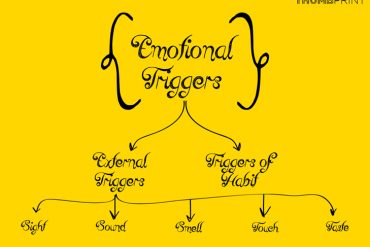By Mohamed Al Jneibi (@maljunaibi)

“The lowest form of popular culture – lack of information, misinformation, disinformation, and a contempt for the truth or the reality of most people’s lives – has overrun real journalism. Today, ordinary Americans are being stuffed with garbage.” – Carl Bernstein
Just to get the record straight. I am not a psychologist, nor do I claim such a title. It is a known fact that we (human beings) are uniquely strange beings. We experience, feel and act/react to the many stimuli around us. That is just the way we are. No one is any different than the other in that respect. How our brains work, and how our feelings choose to react to them, is usually more to do with how they were raised and conditioned into reacting to certain things.
For example: if we were to watch a YouTube video of a car accident, you are most probably expected to either feel some sympathy or sadness at such a sight. If that video was given a little work, and edited to include a background symphony and the direction of the video was more comical, then you may get confused (and probably disgusted at it), or somehow find yourself being lightly entertained or comical about it, or maybe you will have no reaction at all.
The previous scenario might be funny, but one can draw from it parallel scenarios to the everyday coverage of news events around the world. Every day, we are constantly being stirred with various emotions by the various mediums, e.g., TV, printed press, Internet, social media, etc.
Much of what we absorb from various media outlets, have the tendency to trigger a warranted or unwarranted reaction. Whether they urge us into some form of action, or natural reaction, depends on the person and how they have been conditioned in their society. Representations of groups, ideologies or other causes are also strong drivers in the way people later interpret the events or items at hand.
I am not trying to imply that we are all supposed to cause a riot and do something about a particular issue. But, when most of the world reacts in the same way (neutrality), becoming attached to a particular issue raises a lot of questions as to what made that event capture the attention of people.
I think that with the right amount of exposure, and use of raw images and pictures in the media, we can somehow stir emotions to a preconceived conclusion. Whether it is right or wrong, is an entirely different discussion. But if I were to make the case that what is going on in Bahrain (for example) is unacceptable, all I really needed to do is put a few raw snippets, distribute them to the rest of the world, and conclude that everything being done by one of the sides is flat out wrong.
But am I getting the whole picture?
Are we seeing the full scenario?
Can we simply select what we choose to report (if we were journalists)?
Are people aware of the full story, and its past?
We do not need more “opinionated” journalism; we need full clarity and context. That includes all sides to the issue, and yes the official side too. People need to play devil’s advocate with everything or run the risk of being emotionally “triggered” into an opinion. We need to be given the full picture, no matter how emotionally attached we may be to the issue. We need to accept clarity, and actually absorb the details.
Here We Start – Just Another Undergrad – Living Through The Eyes of Art
Microscopic Me – Society of Tomorrow – To The Point – Spotlight


unfortunately full clarity and context does not sell ,,, hence the opinionated news ,,, i guess in the end it is up to the individual to make sure they do their part on due diligence before formulating an opinion ,,, ie think and read ,,,, great piece and wish you all the best 🙂